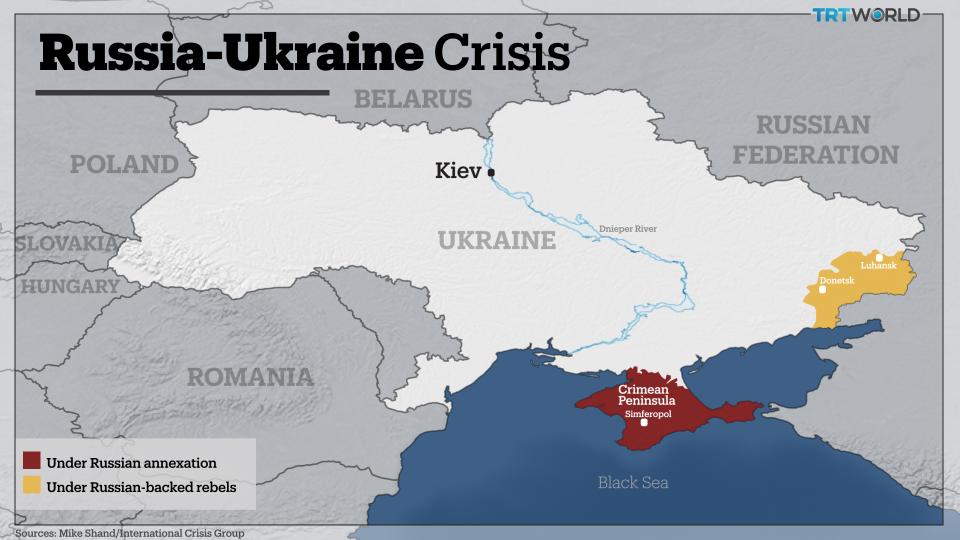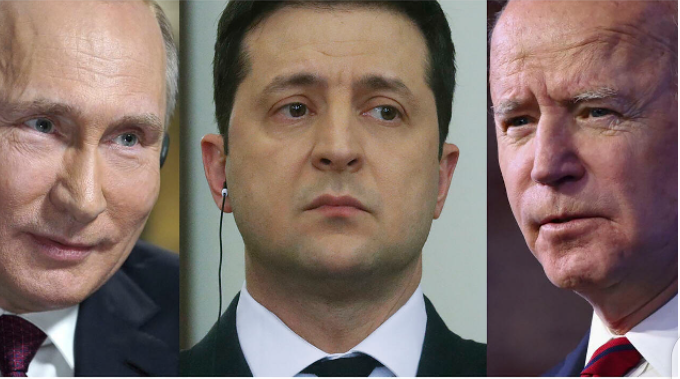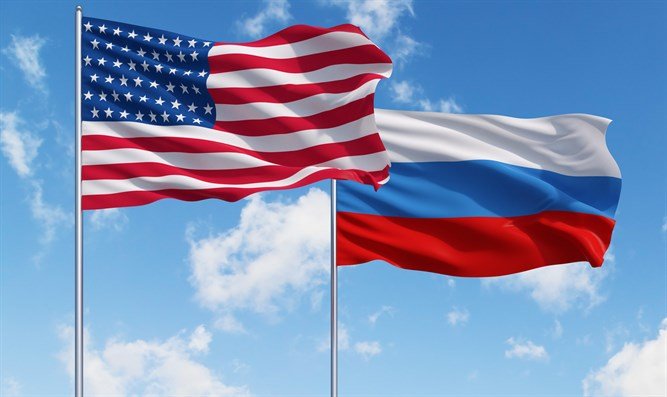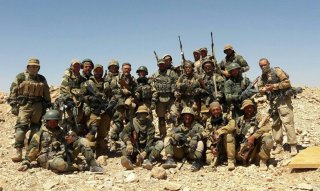By Dennis Onakinor
Dennis Onakinor undertakes a brief historical insight into the ongoing crisis in Ukraine, and comes out with the verdict that in as much as Russia has unwisely cast itself as the aggressor by its military buildup on its neighbour’s borders, it does have a valid point in its security demands on Ukraine and its NATO ally. While noting that President Putin has tactfully left the door open for a negotiated settlement by refraining from issuing any form of ultimatum to Russia’s adversaries, he calls on all parties to the conflict to work relentlessly towards a diplomatic solution as the option of war is rather unthinkable.
Conflict and cooperation are part of the dualities of human interaction. This is even more so in international relations, where conflicts are inherent and inevitable. Hence, the imperative for conflict resolution based on mutual satisfaction. Oftentimes, a conflict develops into a crisis when a particular party seeks exclusive advantage, rather than mutual satisfaction, in its resolution. And, failure to de-escalate the crisis in timely manner could occasion armed hostilities or war. The ongoing crisis in Ukraine exemplifies this situation as Russia has reportedly massed an estimated 120,000 to 150,000 heavily-armed troops on its borders in what many perceive as the prelude to an invasion, although President Vladimir Putin and his spokespersons continue to deny such intensions.
Since October 2021, when the Russian military buildup began, President Volodymyr Zelensky and other Ukrainian leaders have been warning against a potential Russian invasion, with some going the extent of alleging that Russia is plotting a regime-change in the beleaguered country. Thus, backed by the US-led North Atlantic Treaty Organization (NATO) and other Western allies, Ukraine has continued to beef up its defensive and offensive war capabilities, in what analysts perceive as a classical example of the “Richardson Process” – a mutually-reinforcing conflict-spiral situation.
International observers have drawn close parallels between the ongoing crisis in Ukraine and the 1962 Cuban Missile crisis, which saw the US and the Soviet Union on the brink of a catastrophic nuclear war. The only difference, they say, is that unlike the nuclear-armed adversaries in the Cuban crisis, Ukraine is not so armed like Russia. Otherwise, the situation of mutually-assured destruction (MAD) would have restrained Russia from its aggressive behaviour towards her militarily-inferior neighbour. North Korea’s Kim Jung Un and his nuclear blackmail of the international community better illustrates the Ukrainian security dilemma.
In any case, the war rhetoric emanating from both sides of the Ukraine crisis, especially between the US and Russia is, to say the least, frightening. At a press conference on January 12, 2022, NATO’s Secretary General Jens Stoltenberg warned that “We will provide support to Ukraine to enable them to strengthen their ability to defend themselves,” adding that “Russia would pay a heavy price” if it invades. A week later, US’ President Joseph Biden vowed that Putin would pay a “serious and dear price if he steps into Ukraine,” while threatening the Russian leader with sanctions “like none he’s ever seen,” which would most likely include a disconnection of Russia from the international SWIFT payment system and personal sanctions.
On his part, President Putin has issued a stark warning that NATO’s expansion into Ukraine and the deployment of any long-range missiles capable of threatening Russian cities would amount to crossing a “red line.” A spokesman also threatened that Russia would shut off gas supplies to Europe should the country be disconnected from the global SWIFT payment system as Russia presently supplies nearly a third of the European Union’s oil and gas consumption.
While Ukraine’s President Zelensky rightly seeks to downplay the Russian invasion threat by insisting that it is not imminent, his Foreign Minister Dmytro Kuleba has been telling whoever cares to listen that Ukraine would not stand for any attempt by its Western allies to placate Russia on its behalf, and ruling out any Ukrainian concessions to the “aggressor.” Analysts are of the view that the Foreign Minister is just blustering.
In any armed confrontation with Russia – the world’s second mightiest military power, Ukraine stands no chance of victory. As a matter of fact, since 2014, it has been at the receiving end of the civil war in its Eastern region of Donbas (Donetsk Basin), where pro-Russian separatist groups have declared the breakaway “Donetsk People’s Republic” and “Luhansk People’s Republic” with Russian military backing.
Presently, Ukraine is not a member of NATO, but an aspirant. Hence, the alliance is not likely to commit combat troops to its defence in case of a Russian invasion. President Biden said that much on January 25, 2022: “There is not going to be any American forces moving into Ukraine.” Instead, the US has decided to strengthen its military presence in NATO countries to deter any related Russian aggression. The Pentagon has since announced the deployment of 8,500 troops in that aspect.
Like the US, several NATO members have committed to bolstering Ukraine’s war capabilities with advanced conventional weapons, including fighters, bombers, warships, and missile systems. But, since their combat troops will not be fighting alongside Ukrainian forces in the event of a Russian invasion, the country must come to terms with the fact that there is an extent to which advanced weapons can influence the outcome of a war amidst personnel inadequacy. The collapse of US-equipped Afghan forces before the rag-tag Taliban army is a vivid example here.
More so, Ukraine must realize that sanctions, which will be imposed on Russia in a post-invasion period, will not resurrect the war-dead nor heal the wounded that would, ineluctably, comprise children, women, the physical challenged and infirm – the unfortunate bearers of the brunt of war. Therefore, it must understand that its interest lies in preventive diplomacy, and not war. And, in this wise, it must work closely with NATO in its response to Russian demands in the spirit of cooperation and mutual benefit.
The crux of Russia’s demands is that NATO should provide “reliable, legal guarantees” stating that Ukraine would not join the alliance, which should also halt its eastward expansion towards Russian territorial borders. Otherwise, it “will be forced to take every necessary action to ensure a strategic balance and to eliminate unacceptable threats to our security.” In other words, Russia wants to see a non-aligned Ukraine, a reduction of NATO forces based in Eastern Europe, and the removal of offensive missiles from neighbouring countries like Poland and Romania.
Unequivocally, NATO has rejected these demands, considering them as Russia’s attempt to meddle in its affairs. The alliance’s Secretary General Jens Stoltenberg stated that “No one else has the right to try to veto or interfere in that process,” noting that “It’s about the right for every nation to choose their own path.” But, while its rejection of the demands was widely expected, some people are also of the view that Russia’s security concerns are genuine.
In diplomatic circles, it is acknowledged that as the Soviet Union was fast-disintegrating in 1991, President George Bush promised his Soviet counterpart, Mikhail Gorbachev, that former members of the Warsaw Pact alliance, comprising mainly East European communist countries, would not be absorbed into NATO. In other words, NATO would not expand eastward towards the borders of Russia – the Soviet legacy state. NATO has since reneged on that promise as former Warsaw Pact members, including Poland, Hungary, and Czechoslovakia, are now part of the military alliance, to which Ukraine is also seeking membership.
President Putin alluded to this development during his Annual News Conference on December 23, 2021: “We remember, as I have mentioned many times before and as you know very well, how you promised us in the 1990s that NATO would not move an inch to the East. You cheated us shamelessly: there have been five waves of NATO expansion, and now the weapons systems I mentioned have been deployed in Romania and deployment has recently begun in Poland. This is what we are talking about, can you not see? … It is you who have come to our border, and now you say that Ukraine will become a member of NATO as well. Or, even if it does not join NATO, that military bases and strike systems will be placed on its territory under bilateral agreements. This is the point.”
No doubt, Russia has inadvertently cast itself as the aggressor in the ongoing crisis by its militarization of its borders with Ukraine, but it does have a valid point in its demand for security guarantees from NATO, as explained by Putin during the aforesaid news conference: “We have made it clear that any further movement of NATO to the East is unacceptable … Are we deploying missiles near the US border? No, we are not. It is the United States that has come to our home with its missiles and is already standing at our doorstep. Is it going too far to demand that no strike systems be placed near our home? … What would the Americans say if we stationed our missiles on the border between Canada and the United States, or between Mexico and the United States?”
Questionable as its massive military presence on Ukraine’s borders may be, it is doubtful that Russia really intends invading its neighbour – with all the consequences. Perhaps, Putin simply wants NATO to pay attention to Russia’s concerns that have been ignored for too long. “It is you who must give us guarantees, and you must do it immediately, right now, instead of talking about it for decades and doing what you want,” warned Putin at the said news conference.
So far, and for all his bellicosity, Putin has tactfully refrained from issuing any form of ultimatum to either NATO or Ukraine, thus enabling the environment for a negotiated solution to the crisis, even as both sides continue playing to the gallery by issuing threats and counter-threats. As one commentator rightly said, “Russia’s security objectives will not be realized by invading Ukraine, since it would still come down to a negotiated settlement after much death and destruction. So, why resort to a costly war in the first instance instead of diplomacy that is far less expensive?”
There is no gainsaying the fact that a host of international political actors are actively beating the drums of war and baying for blood. Amongst them are the hyper-partisan opponents of the Biden administration. Backed by the US’ conservative media establishment led by Fox News, they are deploying all manner of subterfuge and outright falsehood in their bid to goad the president into a direct confrontation with Putin, whom they say, has outwitted him. Asked what Biden should have done differently, they mumble unintelligible responses.
Also drumming loudly for war is the global media, especially the US-based international news organizations. Their coverage of the crisis leaves no one in doubt about the inevitability of war. Daily reportage of a looming Ukrainian Armageddon has prompted President Zelensky to admonish his fellow world’s statesmen and the media against related sensationalism. Some people say the media is echoing the silent wishes of the global military-industrial complex spearheaded by American arms manufacturers, who are salivating over the prospects of an international war where their latest technologically-advanced weapons would be showcased.
On a retrospective note, the Ukraine crisis has its genesis in events dating back to 2014, when a wave of popular street protests swept pro-Russian President Viktor Yanukovych out of power in February, in what has become known as the “Euromaidan Revolution.” Angered by the development, Putin annexed the South-Eastern city of Crimea and its strategic naval-base of Sevastopol in March. He also militarily backed the self-proclaimed “Donetsk People’s Republic” and the “Luhansk People’s Republic” in the Donbas region. The ensuing war between the separatists and the Ukrainian government has so far claimed more than 14,000 lives, while defying all efforts towards a negotiated settlement, including the Minsk Agreements of September 2014 and February 2015. Related tensions have now boiled over into the on-going wider crisis.
In course of explaining Russia’s decision to annex Crimea on March 18, 2014, Putin had this to say: “They have lied to us many times …This happened with NATO’s expansion to the East, as well as the deployment of military infrastructure at our borders … Let me note too that we have already heard declarations from Kiev about Ukraine soon joining NATO. What would this have meant for Crimea and Sevastopol in the future? It would have meant that NATO’s navy would be right there in this city of Russia’s military glory … But let me say too that we are not opposed to cooperation with NATO … we are against having a military alliance making itself at home right in our backyard or in our historic territory.”
This extract is re-echoed in Putin’s security demands of December 2021. Maybe the time has come for a comprehensive diplomatic solution to the Russo-Ukraine crisis in its entirety.
Dennis Onakinor, a global affairs analyst, writes from Lagos – Nigeria. He can be reached via e-mail at dennisonakinor@yahoo.com








